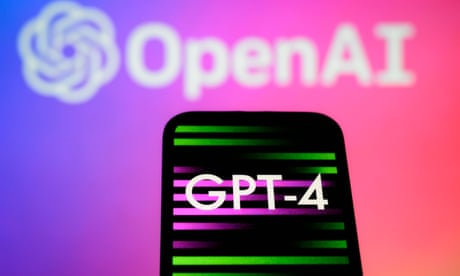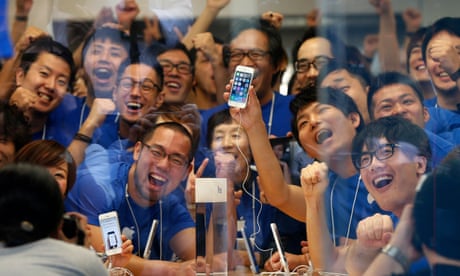- by theguardian
- 21 Sep 2023
GPT-4 has brought a storm of hype and fright � is it marketing froth, or is this a revolution? | Charlie Beckett
GPT-4 has brought a storm of hype and fright � is it marketing froth, or is this a revolution? | Charlie Beckett
- by theguardian
- 19 Mar 2023
- in technology

The recent flurry, or rather blizzard, of announcements of new variants of generative AI have brought a storm of hype and fright. OpenAI's ChatGPT already appeared to be a gamechanger, but now this week's new version, GPT-4, is another leap ahead. GPT-4 can generate enough text to write a book, code in every computer language, and - most remarkably - "understand" images.
If your mind is not boggled by the potential of this, then you haven't been paying attention. I have spent the past five years researching how artificial intelligence has been changing journalism around the world. I've seen how it can supercharge news media to gather, create and distribute content in much more efficient and effective ways. It is already the "next wave" of technological change. Now generative AI has moved potential progress up a gear or two.
But hang on. This is not a breakthrough to "sentient" AI. The robots are not coming to replace us. However, these large language models (LLMs) - such as ChatGPT - are an accelerant that operate at such scale and speed that they can appear to do whatever you prompt them to do. And the more that we use them and feed them data and questions, the faster they learn to predict outcomes.
A million startups are already claiming to use this secret sauce to create new products that will revolutionise everything from legal administration to share dealing, gaming to medical diagnosis. A lot of this is marketing froth. As with all tech breakthroughs, there is always a hype cycle and unexpected good and bad consequences. But I have seen enough to know that it's going to alter our lives. Just think what these tools could do when used by creative people in fashion or architecture, for example.
Artificial intelligence such as machine-learning, automation or natural language processing is already part of our world. For example, when you search online you are using machine-learning-driven algorithms trained on vast datasets to give you what you are looking for. Now the pace of change is picking up. In 2021 alone, global private corporate investment in AI doubled, and I expect the generative AI breakthroughs to double that again.
Now take a breath. I don't recommend that anyone uses ChatGPT or GPT-4 to create anything right now - at least not something that will be used without a human checking to make sure that it is accurate, reliable and efficient, and does no harm. AI is not about the total automation of content production from start to finish: it is about augmentation to give professionals and creatives the tools to work faster, freeing them up to spend more time on what humans do best.
We know that there are some real extra risks in using generative AI. It has "hallucinations" where it makes things up. It sometimes creates harmful content. And it will certainly be used to spread disinformation or to invade privacy. People have already used it to create new ways to hack computers, for example. You might want to use it to create a wonderful new video game, but what if some arch-villain uses it to create a deadly virus?
- by travelpulse
- descember 09, 2016
Resort Casinos Likely Scuttled Under Amended Bermuda Legislation
Premier announces changes to long-delayed project
read more





